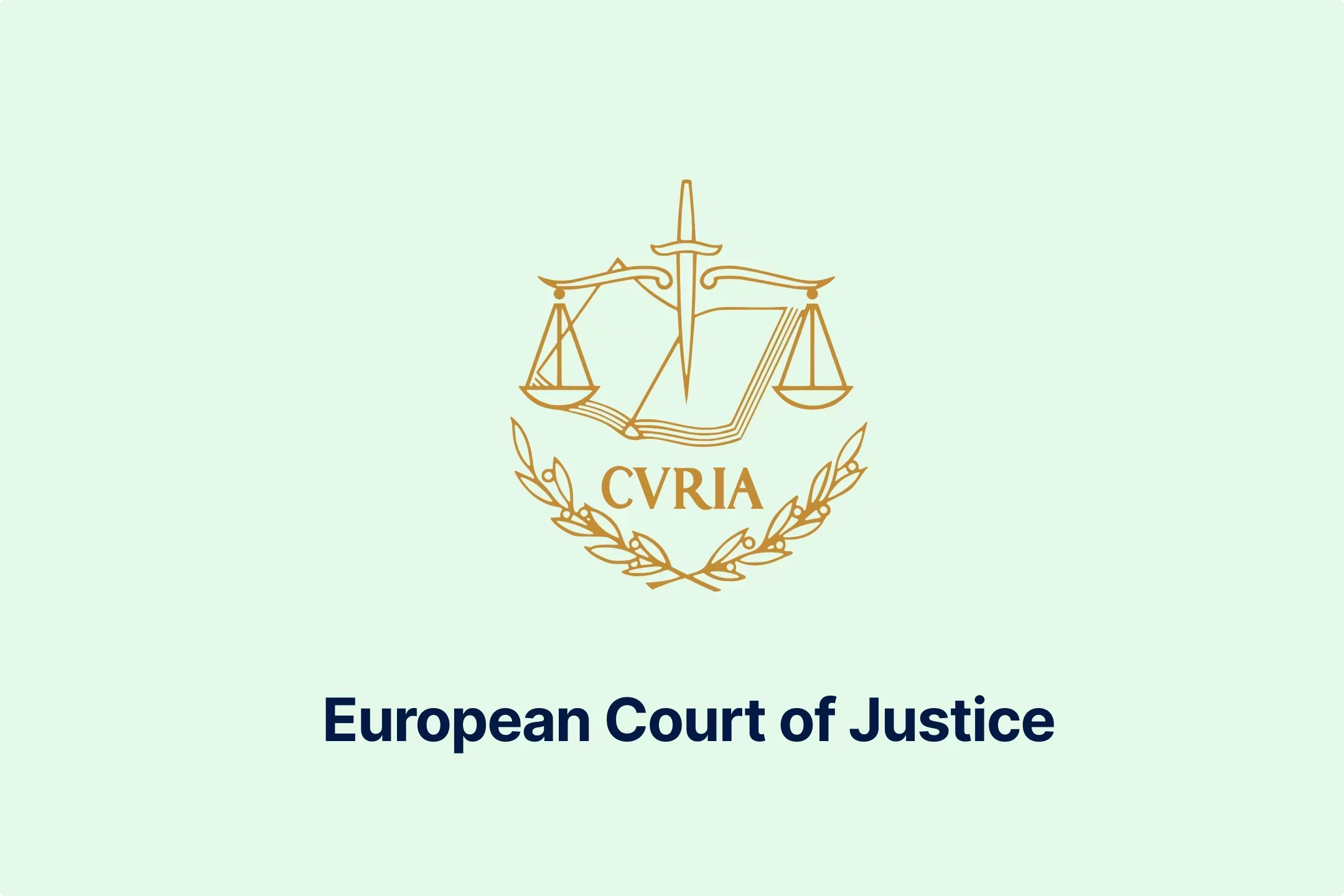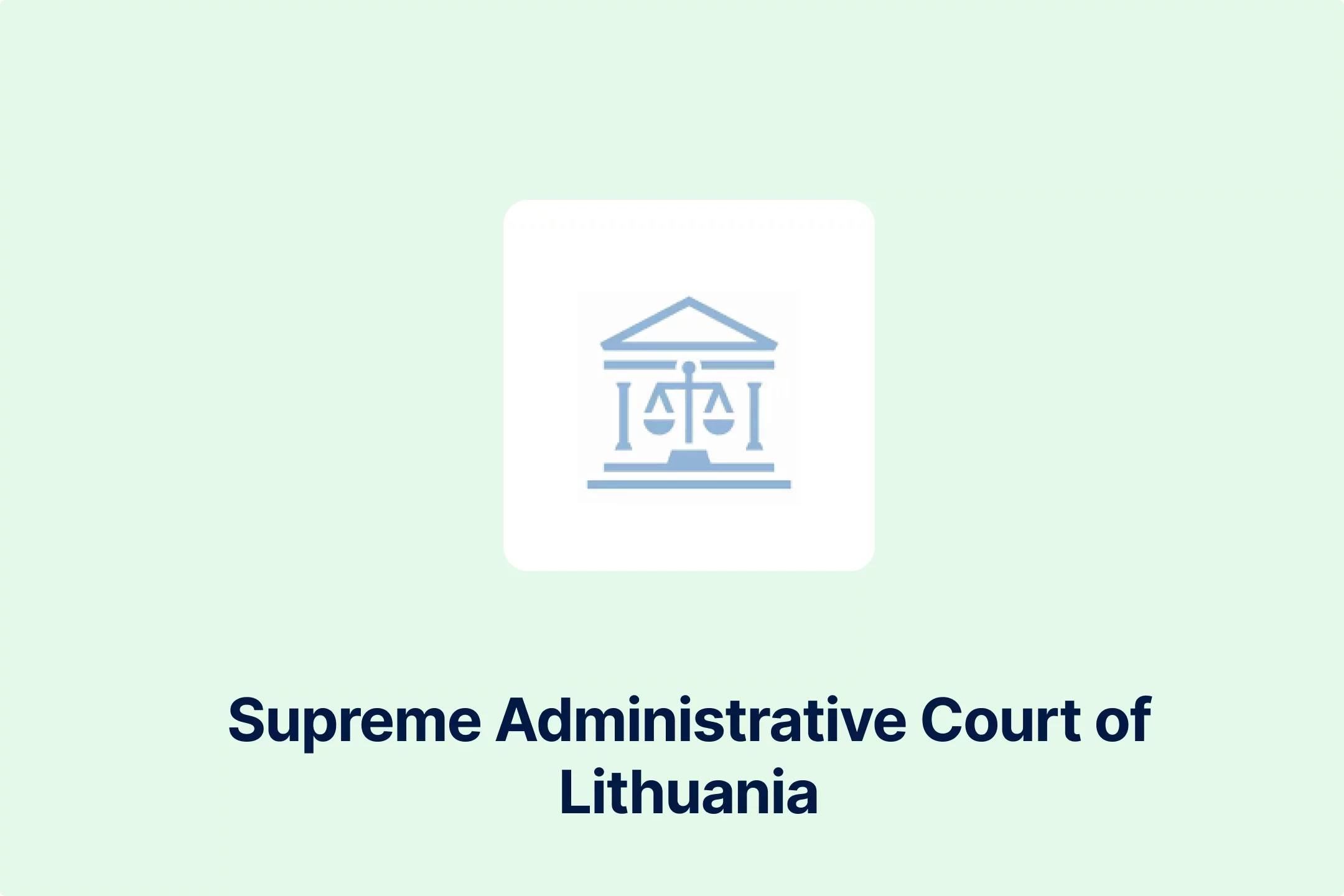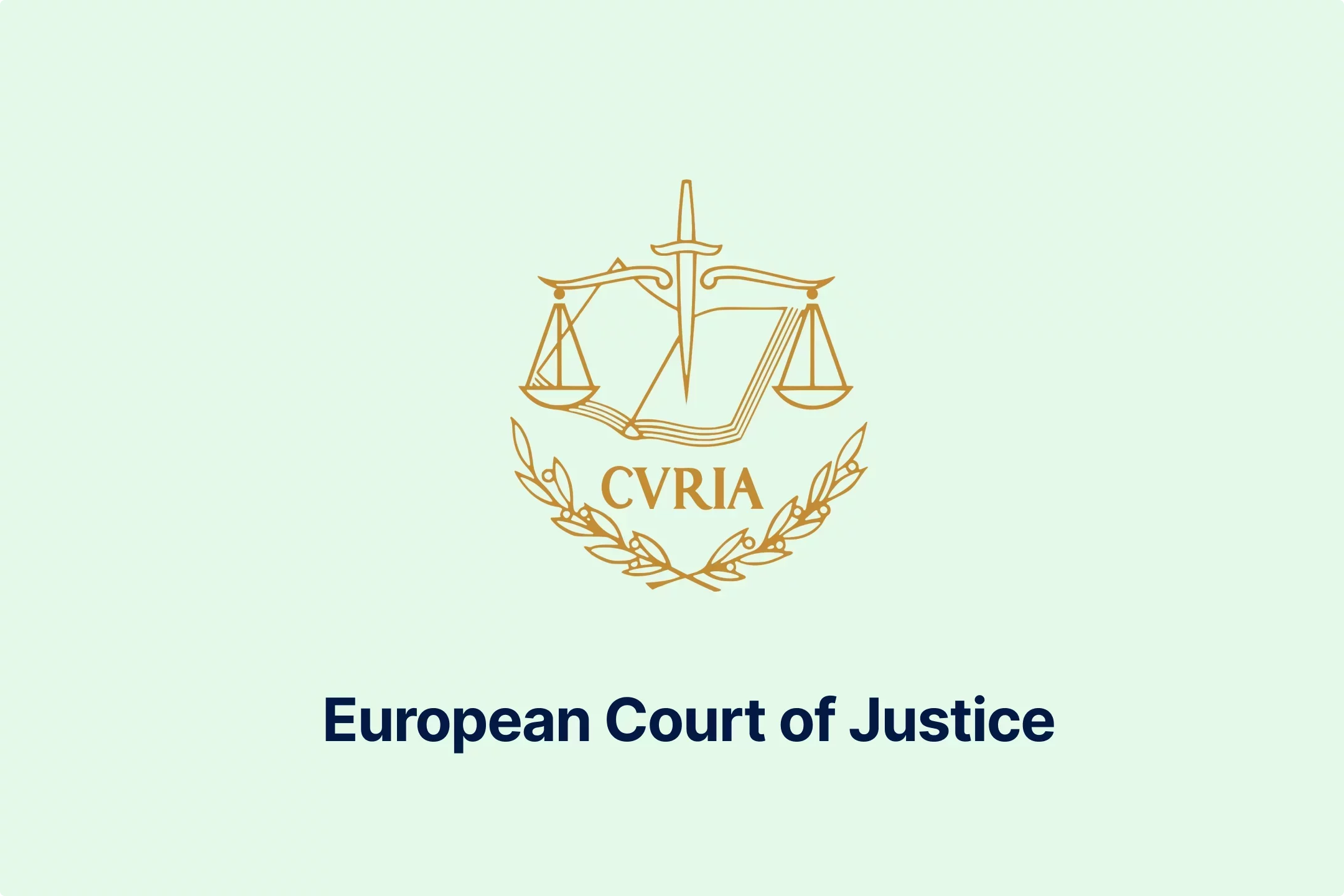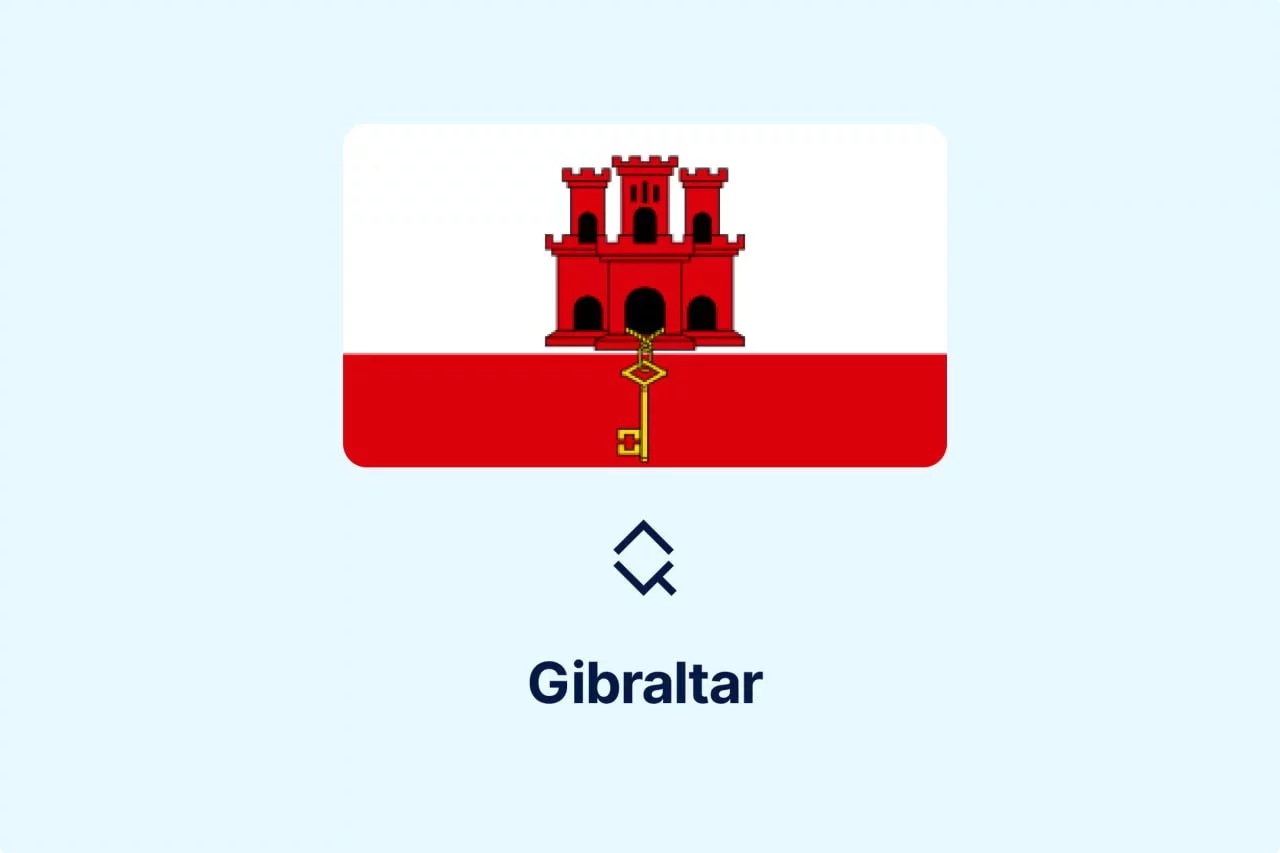ECJ's Influence on National VAT Laws: Case C-171/23 Analysis

The Court of Justice of the European Union, often referred to as the European Court of Justice (ECJ), plays a pivotal role in ensuring that EU Member States follow the rules under the EU Treaties.
As the primary juridical body for interpreting European Union law, this EU institution is tasked with providing interpretation and clarification on EU laws at the request of the national courts and tribunals.
This article will focus on how the ECJ ruling affects national VAT laws by explaining where EU law and the national laws of EU Member States intersect and the Court's process for making its decision.
Interaction Between EU Laws and National Laws of Member States
The EU regulatory framework is based on several founding treaties, including the Treaty on the Functioning of the European Union (TFEU), which sets general rules for the EU's taxation system.
Regarding VAT rules and regulations, the Council Directive 2006/112/EC, also known as the VAT Directive, is central to establishing the EU-wide and harmonized VAT rules. The EU VAT Directive sets the basic concepts and principles that EU Member States must integrate into their national VAT framework.
While EU Member States can adapt certain matters from the EU VAT Directive to their specific needs and policies, the Directive sets minimum standards to be met and respected. For example, while EU Member States can freely define applicable VAT rates and exemptions, each state’s VAT system must align with EU principles to avoid trade barriers.
In these situations, when EU countries have the autonomy to interpret the EU VAT law, that can lead to disputes that the ECJ must settle. Since its task is to ensure that national and EU regulations are compatible and safeguard the Union's cohesion, the ECJ rulings aim to apply VAT laws consistently.
ECJ Procedure for Tax and VAT Cases
Several types of proceedings before the ECJ can be divided into two groups. The first one is the preliminary ruling procedure, which allows national courts of the EU Member States to request that the ECJ interpret EU VAT laws when uncertain or unable to do so independently. This procedure ensures the correct application of EU VAT rules and helps settle disputes.
The second group is direct action and appeals, which includes several types of proceedings, such as enforcing the law, which can be initiated by the European Commission or another EU Member State against a government that fails to comply with EU law or annulling EU legal acts, which can be initiated by the Council of the EU, the European Commission, or the European Parliament when an EU act opposes EU treaties.
Other proceedings from this group ensure that EU institutions take action when needed or sanction EU institutions when their actions or actions of their staff harm individuals or companies.
To better understand how these proceedings work, this article will focus on the procedure for a preliminary ruling.
The Preliminary Ruling Procedure and VAT Matters
The national courts must submit VAT-related questions to the ECJ, which can decide whether to rule in the case or transfer them to the General Court. This stage is called a written stage, where all involved parties submit their written statements to the ECJ.
Once all statements have been submitted, the judge-rapporteur summarizes the received written materials, and the case is discussed at the Court's general meeting. Depending on the case's complexity, the decision on the number of judges who will deal with it is made at this meeting. Also, the decision on whether to hold a public hearing and to request an official opinion from the Advocate General (AD) is made at the Court's general meeting.
If there is a public hearing, lawyers from both sides present their cases to the judges and AD, who can ask them questions about relevant points from their presentation. When the AD's opinion is required, the AD usually has a couple of weeks to draft and submit it to the Court.
After completing all these steps, the judges review the provided facts, statements, and documents and decide.
So, how does this work in practice?
Preliminary Ruling in Practice
To better understand how this procedure works, we will refer to a recently published article about the dispute between a Croatian-based company (Company) and the Croatian Ministry of Finance. The Croatian Tax Administration, part of the Ministry of Finance, requested the Company pay around EUR 18,000 for due VAT and interest of around EUR 320 for late payment.
This was because the Croatian Tax Administration determined that the Company was established to benefit from the VAT exemption regime that applied to another company, that is, for VAT evasion purposes.
Since the Company did not consider that it was violating any law, it appealed against this decision before the Administrative Court. After considering the subject matter, the Administrative Court could not decide if it could apply EU law related to the prohibition of abuse. With that doubt in applicable law, the Administrative Court submitted a request for a preliminary ruling to the ECJ.
After determining all the relevant information and providing an analysis of the applicable EU and Croatian regulatory framework, the ECJ made its decision.
Impact of ECJ Decisions on VAT Framework
The impact of the ECJ decision could be reviewed from the perspective of national governments in charge of adopting, implementing, and enforcing tax and VAT-related laws and taxable persons subject to those laws.
On one side, the national courts, which are the ones that request preliminary rulings, can use the previous ECJ decision to settle disputes and resolve any ambiguities and inconsistencies between EU and national VAT laws. However, if there are no similar cases, they can always submit a request and ask the ECJ to decide on relevant VAT-related issues that might further deepen the application of EU and national laws. In any case, all national courts must be guided by the principle of supremacy of EU law over the national laws.
From the perspective of the taxable persons, they can use the ECJ ruling to avoid potential uncertainties and ensure proper compliance with VAT regulations. The ECJ decision for one EU country applies to all EU countries, which may help businesses better navigate their VAT-related decisions.
Challenges for Implementing ECJ Decisions at the National Level
Implementing ECJ decisions on the national level is not without its challenges. Decisions that state that national laws are in contrast to the EU legislation usually bring the obligation for the EU country to change those rules or practices.
Since the law-making and changing process depends on several factors, national governments sometimes need to spend time and effort on this. In addition, some countries may be reluctant to implement the ECJ ruling if it conflicts with national interests and policies to protect specific industries or economic structures.
Conclusion
ECJ decisions are essential in shaping the EU VAT landscape and bring much-needed clarification and certainty to implementing relevant VAT rules. While they are mandatory for EU national courts and governments, taxable persons should also be updated with the latest decision since it can help them stay or reach compliance.
Source: Curia - The Institution, Curia - Court of Justice, Curia - General Court, Statute of the Court of Justice of the European Union, Treaty on the Functioning of the European Union, European Parliament - Competences of the Court of Justice of the European Union, EU VAT Directive, VATabout - ECJ Case - Decision on Abuse of Right on VAT Exemption in Croatia (C-171/23)

Featured Insights

Burkina Faso FEC E-Invoicing Mandatory July 2026
🕝 February 24, 2026More News from Europe
Get real-time updates and developments from around the world, keeping you informed and prepared.
-e9lcpxl5nq.webp)




-zzrhegqsyq.webp)

-ulcnia30z1.webp)



-3rcczziozt.webp)

-rvskhoqpms.webp)




-a5mkrjbira.webp)

-ivkzc1pwr4.webp)




-hssrwb5osg.webp)



-c06xa1wopr.webp)









-webajrr4ny.webp)
-evibmwdwcn.webp)
-7acdre0hop.webp)

-lcgcyghaer.webp)
-ol6mdkdowg.webp)
-aqdwtmzhkd.webp)

-njgdvdxe2u.webp)



-i6rki3jbad.webp)
-hdwgtama05.webp)

-atbhy5fyxv.webp)






-zp2n6zixoa.webp)
-oa1ynbm4sn.webp)


-lltkno6txy.webp)



-do38odrqnq.webp)

-t409oldqzt.webp)

-hordopb6xh.webp)

-ooimnrbete.webp)

-lwb5qpsily.webp)


-eumafizrhm.webp)

-mtqp3va9gb.webp)

-3ewrn1yvfa.webp)
-591j35flz2.webp)

-huj3cam1de.webp)


-hafis0ii23.webp)

-qseaw5zmcy.webp)



-qzsah2ifqx.webp)


-69rzooghib.webp)
-wrvng98m0g.webp)


-psucycuxh2.webp)
-klyo8bn5lc.webp)




-6wv5h5eyyd.webp)
-tfgg78rbid.webp)
-a6jpv9ny8v.webp)
-qhdbapy0qr.webp)


-owvu7zoc13.webp)


-h28jrh1ukm.webp)

-wl9bl1rw3a.webp)

-2w76jtvtuk.webp)

-c0uvrmrq9j.webp)



-pofe7ucwz3.webp)



-5cc23ezxyf.webp)
-rrmabbekeb.webp)








-iyyeiabtaf.webp)
-c8rbjkcs01.webp)
-nilkffjhah.webp)

-hikakq55ae.webp)

-z1d60bldtg.webp)
-d1a0q6n7mp.webp)
-viip8nvoeh.webp)
-bvv1otliox.webp)



-de8hdb1bn3.webp)
-7xsxxoypnx.webp)

-cm0opezg73.webp)
-0tovsdupmi.webp)
-subxdamdj6.webp)


-gly6ablwnh.webp)
-gkduqhwbzh.webp)
-qpe1ld9vcj.webp)
-8noukwsmba.webp)
-aka29tuhkt.webp)


-fisvs27yrp.webp)


-mp0jakanyb.webp)

-aivzsuryuq.webp)



-o7f4ogsy06.webp)

-zjja92wdje.webp)
-hrbhdts8ry.webp)
-qtdkwpgkug.webp)


-cf8ccgah0p.webp)
-0em3cif5s6.webp)






-ptzesl0kij.webp)

-tfzv42pyms.webp)







-uodv7sfbih.webp)
-bbrdfmm9qf.webp)



-m2tl8crfqr.webp)




-1awbqjgpjs.webp)
-avbjsn1k1g.webp)


-0h8ohkx6s0.webp)



-wfmqhtc7i6.webp)
-7wljbof2zo.webp)

-eqt97uyekl.webp)
-wzw9mcf563.webp)

-z4oxr6i0zd.webp)




-l0zcrrzvhb.webp)
-fhtic1pwml.webp)

-iipdguuz9p.webp)
-nkhhwrnggm.webp)
-pltqwerr3w.webp)

-nn6mtfbneq.webp)

-tmnklelfku.webp)



-8z1msbdibu.webp)
-7g16lgggrv.webp)



-lxcwgtzitc.webp)
-9mc55kqwtx.webp)


-xla7j3cxwz.webp)
-jrdryw2eil.webp)






-t9qr49xs2u.webp)


-qjopq5jplv.webp)



-vune1zdqex.webp)

-qsozqjwle2.webp)
-rgjta7iwiv.webp)

-zb6bxxws47.webp)
-lyfjzw4okp.webp)

-ogpfmol5m1.png)


-czisebympl.png)

-zetvivc79v.png)
-ud7ylvkade.png)
-qizq6w2v5z.png)







-ihr6b4mpo1.webp)
-k1j4au0ph6.webp)
-swxxcatugi.webp)


-ig9tutqopw.webp)

-tauoa6ziym.webp)

-spr0wydvvg.webp)

-xfuognajem.webp)





-u2nv5luoqc.webp)








-opuxpan2iu.webp)




-kwttsfd8ow.webp)
-8u14qi10nj.webp)

-wjpr96aq5g.webp)

.png)

.png)


.png)


.png)



.png)
.png)
.png)
.png)
.png)

.png)
.png)




.png)
.png)



































































































































